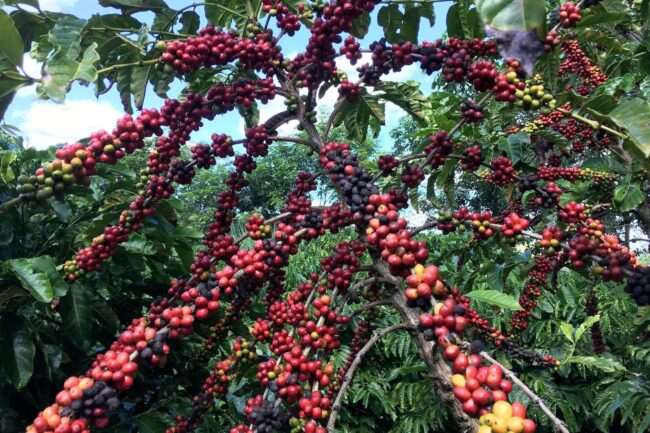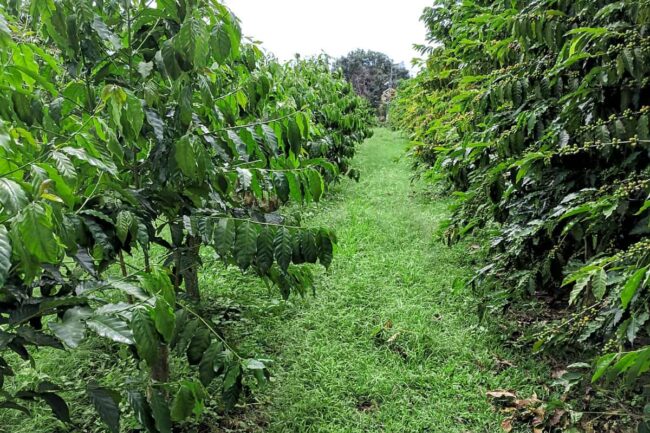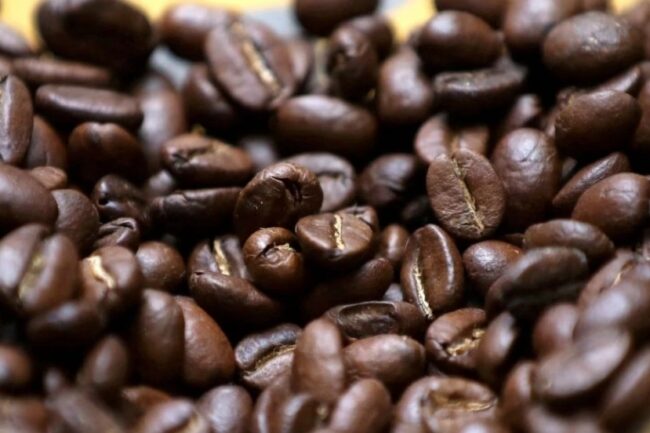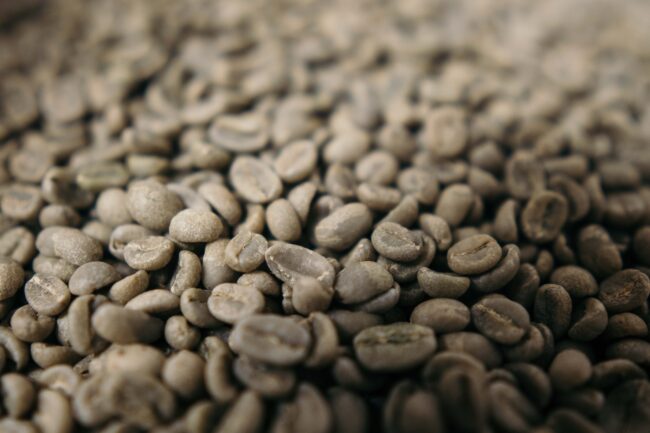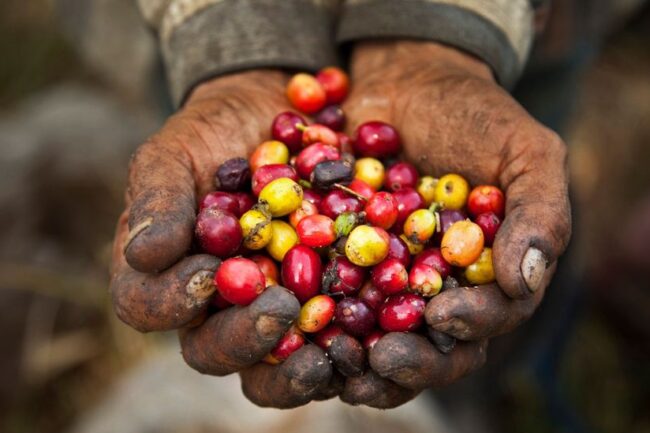July arabica coffee (KCN23) today are down -2.65 (-1.60%), and July ICE robusta coffee (RMN23) is down -43 (-1.53%).
NY arabica coffee today fell to another new 5-month low, while July robusta continued to fall back from Tuesday’s new record high (data since 2008). Arabica coffee is seeing continued technical weakness with the new 5-month low, while robusta is seeing continued long liquidation pressure after the sharp 6-month-long rally to Tuesday’s record high.
NY arabica coffee is being undercut by favorable weather in Brazil that has eased frost fears and paves the way for an even quicker harvest. Somar Meteorologia on Monday said, “Dry weather continues to predominate over most of the producing areas (of Brazil) and will remain favorable for harvest activities throughout this week.”
Somar Meteorologia reported Monday that Brazil’s Minas Gerais region received zero rain in the latest week. Minas Gerais accounts for about 30% of Brazil’s arabica crop. Cooxupe, a Brazil coffee export cooperative group, reported Wednesday that Brazil’s Cooxupe coffee harvest was 27.8% completed as of June 23, well ahead of the 19.2% completed at the same time last year.
In a supportive factor for arabica coffee, ICE-monitored arabica coffee inventories last Wednesday fell to a 7-month low of 541,139 bags, rebounding mildly to 549,252 bags Tuesday. Meanwhile, ICE-monitored robusta coffee inventories on Monday fell to a new 3-1/2 month low of 7,335 lots but rebounded slightly to 7,373 lots on Wednesday.
Robusta may be vulnerable to long liquidation pressure after Friday’s Commitment of Traders Report showed that funds in the week ended June 20 increased their net-long position in ICE robusta coffee futures by +1,964 to a 1-1/2 year high of 48,015.
Coffee prices saw support Tuesday after Rabobank raised its 2022/23 coffee deficit forecast to -6.4 million bags due to a cut for 2022/23 coffee production by 3.6 million bags to 164 million bags. The production cut was caused mainly by production cuts for Brazil and Colombia. However, Rabobank is expecting a neutral coffee balance in 2023/24, with a surplus in arabica and a deficit in robusta.
The USDA Foreign Agricultural Service forecasted in its June biannual report, released on June 22, that world coffee production in 2023/24 will increase +2.5% y/y to 174.3 million bags, with a +6.9% increase in arabica production to 96.3 million bags, and a -2.4% decline in robusta production to 78.0 million bags. USDA FAS is forecasting that 2023/24 Brazilian coffee production will rise by +14.5% to 67.9 million bags, while Vietnam’s 2023/24 production will fall -3.5% to 30.2 million bags. USDA FAS is forecasting that 2023/24 ending stocks will edge higher by +0.8% to 31.8 million bags from 31.6 bags in 2022-23.
Global coffee exports have fallen after the International Coffee Organization (ICO) reported on May 4 that global 2022/23 coffee exports during Oct-Mar fell -6.4% y/y to 62.295 mln bags. Also, Cecafe June 13 reported that Brazil’s May green coffee exports dropped -20% y/y to 2.12 mln bags. By contrast, Honduran May coffee exports soared +79% y/y to 1.2 million bags. Honduras is Central America’s biggest exporter of arabica beans.
Robusta coffee is seeing support from a tight supply outlook. Coffee trader Volcafe recently forecasted the global 2023/24 robusta coffee market would see a record deficit of 5.6 mln bags.
The U.S. Climate Prediction Center on June 8 declared an El Nino weather event, which is likely to be supportive for coffee prices. The U.S. Climate Prediction Center said sea surface temperatures across the equatorial Pacific Ocean had risen 0.5 degrees Celsius above normal, and wind patterns have changed to the point where El Nino criteria have been met. An El Nino pattern typically brings heavy rains to Brazil and drought to India, negatively impacting coffee crop production.
Illustrating a tight coffee supply picture in 2022/23, the International Coffee Organization (ICO) said the global 2022/23 coffee market deficit widened to -7.3 mln bags from a -7.1 mln bag deficit in 2021/22. ICO reported that 2022/23 global coffee production increased +1.7% y/y to 171.27 mln bags, but that 2022/23 global coffee consumption increased +1.7% y/y to a larger 178.53 mln bags.
More Coffee News:
